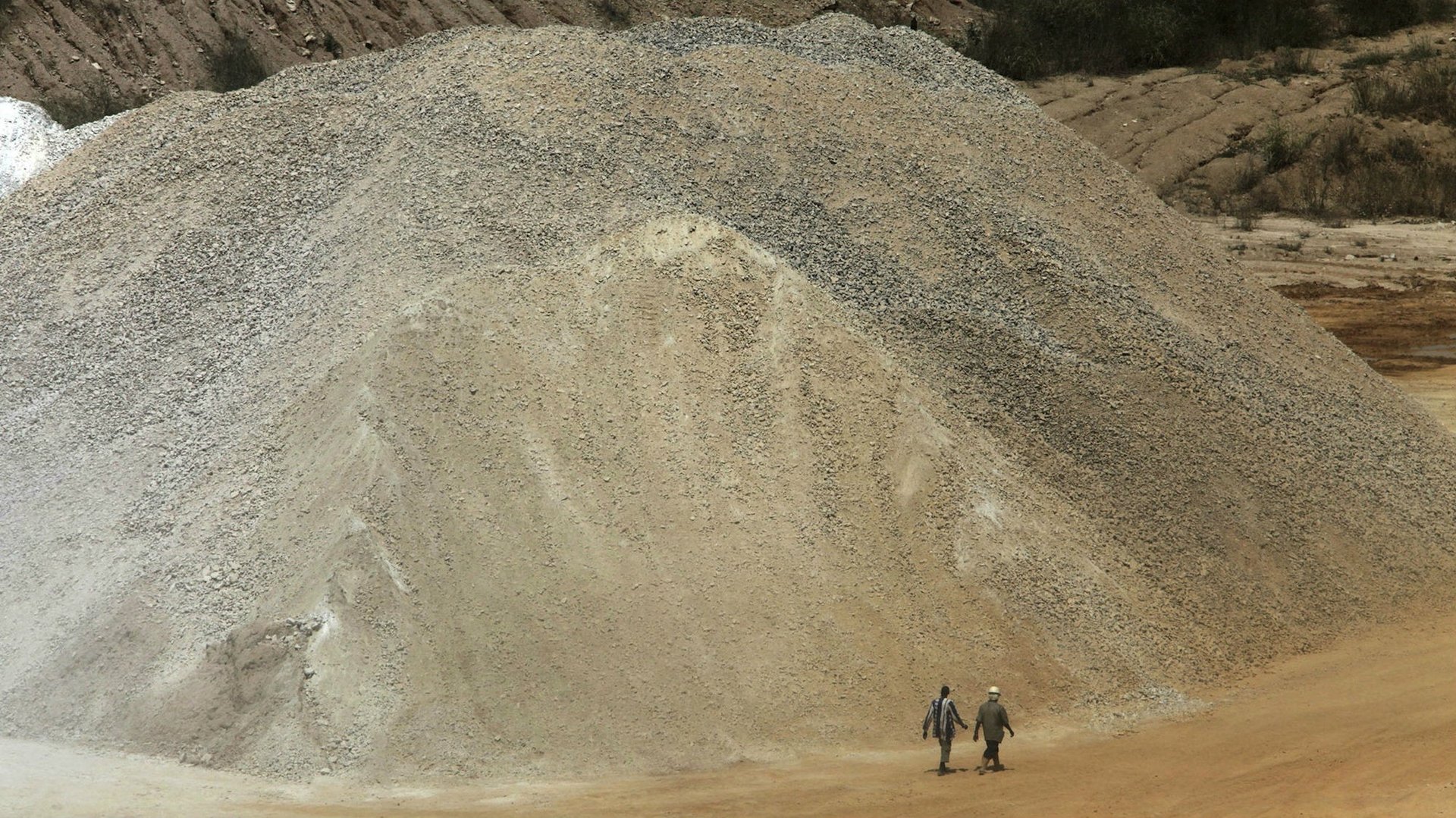Africa’s richest man plans to almost double the continent’s cement production by 2020
Africa’s cement wars are heating up. Dangote Cement, owned by Africa’s richest man, Nigerian billionaire Aliko Dangote, has revealed its agreement with a Chinese construction company to build cement plants in 11 countries.


Africa’s cement wars are heating up. Dangote Cement, owned by Africa’s richest man, Nigerian billionaire Aliko Dangote, has revealed its agreement with a Chinese construction company to build cement plants in 11 countries.
Producers of the world’s most used man-made material have been increasingly looking to sub-Saharan Africa as the world’s “last cement frontier.” (Others have taken to calling the material ”the new oil.“) The region’s fast-growing populations and economies, as well as its dramatic pace of urbanization have encouraged a building boom in transport, energy, and shipping infrastructure. Dangote competes with LafargeHolcim, the largest cement producer on the continent, Germany’s Heidelberg Cement, South Africa’s PPC as well a cheaper imports from Pakistan and China.
In a deal worth an estimated $4.3 billion the construction company Sinoma International is helping Dangote build facilities in Nigeria, Ethiopia, Kenya, Ghana, Cameroon, Ivory Coast, Senegal, Zambia, Niger, Mali, and also Nepal. The new factories will add around 25 million tonnes to the firm’s existing cement capacity of 45 million tonnes within the next 30 months. Dangote said he plans to increase capacity to 100 million tonnes by 2020, which is 75% of sub-Saharan Africa’s estimated total installed capacity today.
Dangote and his rivals are eyeing fast-growing economies like those of the Democratic Republic of Congo, Burundi and Rwanda. Two thirds of Sub-Saharan African countries have to import half of their cement. The World Bank’s International Finance Corporation estimates that cement production capacity will need to increase between 10 million tonnes and 15 million tonnes a year over the next decade to meet demand across the continent. Despite years of double digit growth in cement consumption, it is still well below the global average of 513kg per capita.
Dangote and other companies’ cement ambitiond are not without risks. In East Africa, where energy tariffs are on the rise, electricity accounts for as much as 30% of the cost of making cement. In West and Southern Africa, energy supplies are often erratic, according to a report from the research firm Imara (pdf) last year.
Increased competition could mean over supply in countries like Kenya, Tanzania, and Zambia, where new Dangote plants have prompted incumbent producers to increase their production capacities as well, according to Imara. “In our view however, any potential over supply situation should not be expected to last long due to the rapid growth in cement demand,” the consultancy concluded.